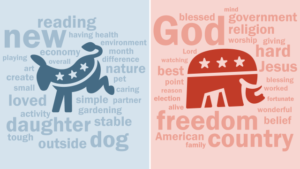To The Left: Direct Democracy
By Duane Paul Murphy
Last year appeared to be a negative public image for direct democratic processes and institutions. Across the pound, by a 51% majority vote in a non-binding, non-statutory referendum, the United Kingdom of Great Britain decided to withdraw from the European Union after more than 40 years of membership and integration with the continent. Towards the end of the northern equator, Colombians voted against a landmark peace agreement with the FARC militant rebels, which was signed and formulated by President Juan Manuel Santos and FARC leader Timoleon Jimenez after almost four years of diplomatic negotiations between the two parties. The referendum in the South American nation of Columbia was rejected by 50% of the vote and had low turnout. Between the Rocky Mountains, voters in Colorado passed a statewide initiative that would essentially make putting constitutional amendments on the ballot more difficult by requiring a further increase in signature gatherings for petitioners.
Based on these contemporary events, some might say direct democracy tends to be dangerous or cautious due to concept of mob rule as part of the democratic flaws. However, we must understand that the agents of neoliberalism, such as the corporatization of media, unfair free trade deals, austerity, deregulation, anti-labor laws, militarism and deterioration of the traditional welfarist system, are the main reasons why voters, informed or otherwise, are sick and tired of the establishment’s policies that led to massive inequality. Also, in order for direct democracy to become a modest tradition once more in our political society, not only our politicians, left or right, must represent the people’s true concerns, but they also have to respect and compromise the will of the people. In fact, states such as New York and Texas do not even have direct democracy. If we offered direct democracy at the state and local level as well as have a government that is representative of the people, direct democracy will have a positive light to shine in our society and culture. As a matter of fact, states, territories and localities with direct democracy have happier voters, according to research from a professor at the University of Notre Dame.
If more voters had the ability to dictate certain policies such as taxation, recreational as well as medicinal cannabis legalization or decriminalization, non-renewable energy divestments, minimum wage increases and euthanasia for the terminally ill, then maybe elections would become more exciting and American as apple pie. As Bill Clinton once said, “Democracy does not have to be a bloodsport.” Even though he is neoliberal, common ground can be solidified since democracy should be for the people’s interests rather than the special interests of the few, the powerful, the rich and the corrupt.








